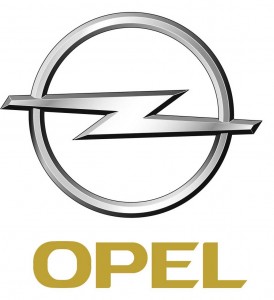In a GM Europe blog post earlier today, the negotiator on the sale of Opel said he needed to update the actual status after several days of talks with both of the final bidders. John Smith, a GM Group Vice President, characterized the media coverage as both “extensive” and “sometimes misleading.”
Smith said the “best” and final offers were received by GM from Magna and RHJI on July 20th The preliminary findings were then compiled and shared with the German government, other European governments, the European Commission and the Opel Works Council, among others. A week of talks then ensued with both bidders “to clarify certain aspects of each company’s proposal and to attempt to resolve, as necessary, important issues the final offers contained.”
I surmise that various self-interested parties were leaking to the press in an attempt to sway the outcome. For the record Smith only says “Press reports have tended to exaggerate the state of progress, a few even suggesting the deal is done and that Magna has been selected. That’s not the case.”
So where is the sale?
As TDB previously reported, the RHJI bid is a cleaner two-party deal. It’s easier to implement and gives GM a larger share of the new Opel. Smith confirms that most of the time was spent negotiating with the Magna/Sberbank team, which could, of course, lead some observers to conclude that the deal was heading that way.
A giant complication, not discussed, is apparently the Opel Works Council, whose political leanings are causing it to push for the Russians, even though the Russian deal will cost Western Europe more job cuts than the RHJI bid.
As he previously said, the Magna proposal is a much more complex three-way deal, “owing to the inclusion of Russia and a third, Russian-based investor,” according to Smith, “We started the week with about 30 issues to resolve, including NewOpel involvement with Chevrolet in Russia, intellectual property transfer rights in Russia, advanced technology access, product development responsibilities, minority shareholder rights and other items.”
Smith estimates that only one-third of the issues have been resolved. And it appears that the talks are deadlocked over the final 20 items.
Many of these items have been around for months. “Russia, intellectual property, product development responsibilities and various governance issues are among the unresolved issues, many of them on the table for some time now.”
Smith confirms that GM is worried about protecting its intellectual property.
“This transaction should not become a pipeline, shipping valuable intellectual property to destinations unknown.
As we work through the detailed draft agreements over the next couple of days, it appears likely that more issues will be raised by the investors, especially in the engineering services and technical license areas,” he said. GM’s is planning on paying for virtually the entire Opel engineering budget going forward.
In Smith’s view, there is really “very little difference between two proposals’ product, manufacturing and purchasing plans, the three big value-adding levers in the automobile business.”
It all comes down to a risk evaluation,
“There are at least three elements that come to mind, thinking in lender terms: the amount of government money required; the degree of ‘independence’ truly in Opel’s long-term interest; and the question of focus, which refers to the scope of the proposal and the ability to spend time and money on the right few things. The ability to focus also includes keeping good alignment between the investors over time, which is more challenging with three parties compared to two. These risk factors have also been shared with the German governments’ automotive task force this week,” he said.
It is by most accounts a complicated negotiation, as we have noted before, since it will require the agreement of labor unions, regional and federal governments, financial institutions and regulators, among others, to broker a deal to save Opel. And GM needs to save Opel engineering if the reorganized company is to have a good shot at surviving the brutal car wars of this decade.
This could be a long slog…

